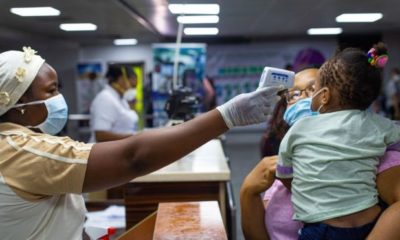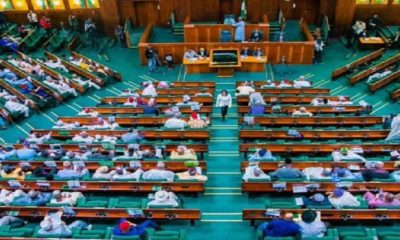Nigeria News
COVID-19: Why States Were Directed To Halt Vaccination Halfway – FG

The Federal Government on Tuesday revealed why it directed states in the country to stop administering the Oxford-AstraZeneca COVID-19 vaccine, the moment they administer half of the doses allocated to them.
The Minister of State for Health, Dr. Olorunnimbe Mamora, stated this while speaking at the joint national briefing of the Presidential Task Force (PTF) on COVID-19.
He disclosed that the Nigeria government took the decisions since its not sure when the second batch of the vaccine will arrive the country.
“This is in order for those who have received their first jab to be able to complete their vaccination. We believe that in a situation where, we still cannot specifically determine when the next batch of AstraZeneca vaccine will arrive, then I think wisdom on dictates that, it’s better for us to vaccinate people fully.
“And so that we can say that we have a pool of citizens that have been fully vaccinated, since this vaccination comes in two doses.
“So that is what gave rise to that directive, rather than just going ahead with just a single dose when the full dose should be two doses of the same. So we felt that it was proper for us in the circumstance to ensure that those who have been vaccinated have been fully vaccinated. I mean, by the time we fully utilise doses available, thank you very much.”
The Director-General of Nigeria Centre for Disease Control (NCDC), Dr. Chikwe Ihekweazu, while speaking at the briefing noted that the center is investigating the reported blood clotting in some individuals that have taken the first jab of AstraZeneca vaccine.
“There has been ongoing investigations that we’ve all be following on the suspected link between the AstraZeneca vaccines to certain rare experience of blood clotting in individuals in Europe. Those investigations are still ongoing, right. Not all European countries are adopting the vaccines for their populations.
“In Nigeria with every vaccine, we have a parallel system to measure and to monitor any side effects. That is ongoing and is being managed by the National Agency for Food Drugs (NAFDAC) in collaboration with National Primary Health Care Development Agency (NPHCDA) and we will continue to monitor patients in Nigeria.
“Every demographic is different, the demographic in taking vaccines in every country is different, the interaction between different drugs people are taking. So there are many circumstances that need to be fully evaluated, we will look at the data ourselves here in Nigeria and, I will take action as needed.
“I think the critical thing to always remember, when you talk about medicines, vaccines and side effects is, never as simple as it might look, they always have to weigh the risk versus the benefits. And once you do that, it becomes immediately obvious that the benefits of these vaccines by far outweigh small risks in individuals.
“The argument against that is always if one person is at risk, the risk in that person is 100%, whether the rest of the population gets it or not, which is true. So which is why we’re obliged to investigate every case that we see and do the best that we can to understand what’s going on,” Ihekweazu said.












